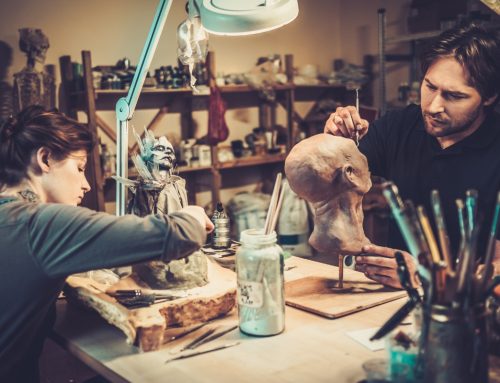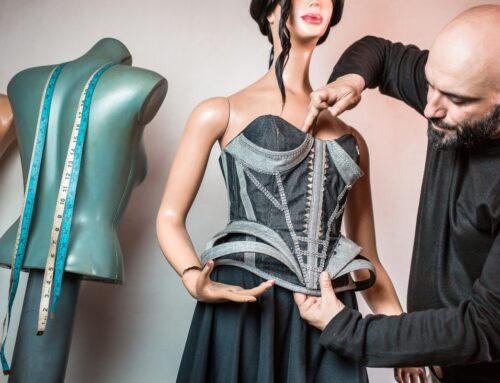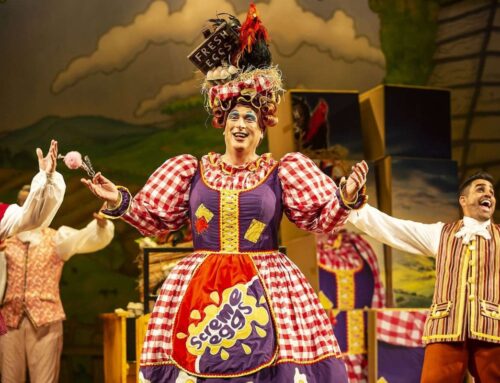Like many creative careers, there’s no one-size-fits-all approach to becoming a film costume designer. Every designer will tell you a different story with different qualifications, different career backgrounds, and different starts. However, understanding more about the different roles and routes they take gives you a great head start to becoming a costume maker yourself.

What is a Film Costume Designer?
Film costume designers are visual storytellers, assisting production teams in clothing and accessorising on-screen stars. Their work starts right from the beginning of pre-production. They help manifest the stakeholder’s vision for each project, but crucially, this vision often starts in textual and conception format. Collaborating with different teams, a film costume designer helps turn these concepts into things you can touch, wear, and tell a story with. This process requires persistence, attention to detail, and a range of skills as the team and the project develops.
Who Do They Work With?
Besides the obvious design skills, a film costume designer must have the communication and collaboration skills necessary to work with almost every department across a production.
As the executives hone in on locations and lighting directions, costume staff must work on the logistics of sourcing and shipping costumes to different sets and studios. Costumes appear different in different lighting conditions, and they tell different stories.
Speaking of actors, film costume designers must also bear casting in mind as they shape their designs. Costumes must fit and not unnecessarily impede performance. Actors must be comfortable and familiar with their costumes; some outfits require training or preparation.
Of course, designers must also work with hair, makeup, and fitting teams as actors prepare for filming and change costumes as the film progresses.
What Skills Do Film Costume Designers Require?
For professional film costume designers, the first stage of each project involves breaking down a script. This break-down requires comprehensive and analytical prowess to identify the quantities, ages, periods, roles, and stories of each costume.
Designers then deploy powerful research skills, scouring history, fashion, and film for sources and samples to justify their designs.
The next, and most crucial stage, involves the design itself. Clearly, designers must be creative and artistic, with a strong fashion sense. Turning this creativity into effective designs across digital, visual, video, and textile mediums forms a film costume designer’s bread and butter.
As well as digital and artistic skills, designers must be familiar with the basic fabrication skills required to commission, adjust, and build a costume. For example, sewing, stitching, and repair experience come in handy.
How to Start a Career As a Film Costume Designer>
Understanding the different paths towards a career in film costume design, and which experiences help people most, can help shape your strategy.
University
Degrees in film costume design aren’t common. Many designers don’t have a degree, but some roles ask for one, or a similar qualification. Extra-curricular university experiences, like networking and drama societies, also go a long way in building your portfolio.
Portfolio
Designers must have proof of their work before landing a job, and for many, this looks like a portfolio. Your portfolio could start anywhere, from an amateur production to a solo social media project, to part-time work on a professional show. Wherever you can build work to your best standard, compile it into your portfolio. These days, people get jobs from TikTok alone.
Networking
Speaking of socials, meeting peers and pros on LinkedIn, Twitter, or email can be essential in finding like-minded people or opportunities to start your career. Joining groups, sending pitches, and chatting could even help you find a mentor, an important relationship for an early-career creative.
Other Industries
Not everyone goes straight into film costume design. Some go straight from mainstream fashion and design. Some come from theatre, some come from other film departments as runners or assistants. Try to see which works for you.
Practice
Ultimately, practice makes perfect. If you’re struggling to make your costume maker career, then get materials in front of you, and get designing!





